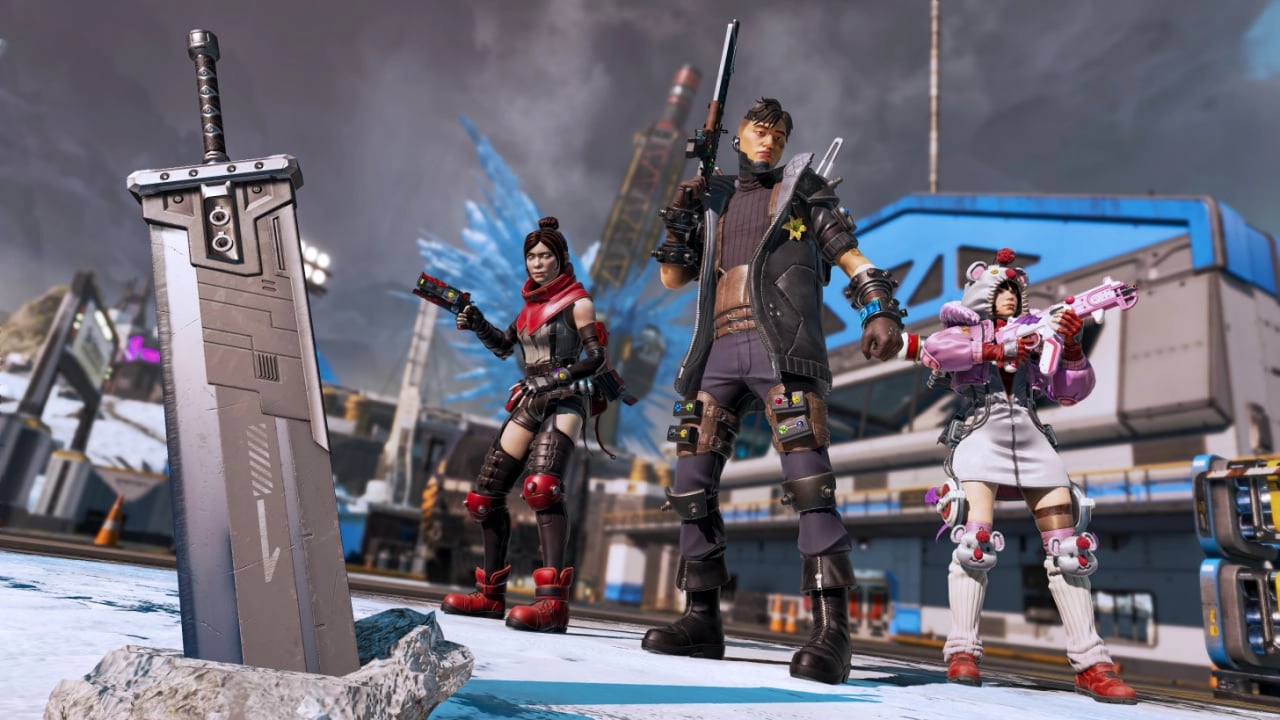
The gaming community is currently abuzz with a potent mix of excitement and outrage following the launch of the Final Fantasy 7 Rebirth crossover event within the popular battle royale game, Apex Legends. This latest event brings a trove of new content to the game, flavored with the aesthetics and themes of the much-anticipated upcoming Square Enix sequel, Final Fantasy 7 Rebirth. Yet, while the event boasts a variety of cosmetic items and fresh gear, its pricing structure has left many fans flabbergasted. At the heart of the controversy is the event's steep financial demand, with a full collection of the crossover content potentially requiring a payment of over $300 from players.
The in-game items for the event can be secured via packs, each priced at around 1,000 Apex Coins, equivalent to approximately $10. With 36 different items to collect to unlock the exclusive One-Winged Angel Deathbox, inspired by the iconic antagonist Sephiroth from the original PlayStation game, acquiring the entire set could see fans shelling out an estimated $360. The community's response to this has been vociferous, with many taking to social media to voice their concerns and unhappiness with what they perceive as exorbitant charges.
A notable instance of this discontent can be found in posts from online influencers and gamers, such as Macro's tweet that highlighted the absurdity of the situation. The crux of the argument lies in the fact that while collaborations between games are typically welcomed by players for the novel content they bring, there is a growing call for these events to be priced within reasonable limits.
Despite the backlash over pricing, credit is due to the game's developers, Respawn Entertainment, who've gone to great lengths to make the crossover a substantial and immersive experience. The event, besides featuring a variety of skins and collectibles, also introduces a complete gameplay mode that incorporates Final Fantasy 7's well-known Materia system, and even allows players to wield the legendary Buster Sword wielded by the game's protagonist, Cloud Strife.
Yet the goodwill generated by these creative inclusions may be eroded by the pricing decisions, as a section of the Apex Legends community expressed their frustration. Some have suggested that such pricing strategies are symptomatic of 'scummy monetisation structures' within the gaming industry and that persistently supporting these models without protest may consequently sideline significant issues that the game might be facing.
Discussions around the topic often highlight a divergence of perspective within the gaming community. On one end are those who believe that expenditures on in-game items are a personal choice and a means to support the game's ongoing development. On the other, there are players who argue that when in-game purchases reach such high amounts, it puts unnecessary pressure on gamers to spend significant sums of money to enjoy the full experience of special events and the content they offer.
This latest scenario in Apex Legends underscores a growing debate in the gaming world regarding the balance between monetization and player experience. Events such as this crossover are viewed as opportunities for developers to both engage their audience and generate revenue. However, when the cost of participation becomes a barrier for a substantial portion of the player base, the strategy risks backfiring, leading to dissatisfied players and negative publicity.
The key question raised by situations like this focuses on the sustainability of such pricing models in the long run. While one-time, high-cost events may yield immediate financial gains, they also have the potential to alienate the player base and engender negative sentiment towards the franchise. For the gaming community, the hope is that the feedback from events like the Final Fantasy 7 Rebirth crossover will pave the way for more balanced and equitable pricing arrangements in the future, allowing for enjoyable gaming experiences without prohibitive costs.
As the gaming industry continues to evolve, it remains to be seen how developers like Respawn Entertainment will navigate the tricky waters of monetization while keeping their community of players engaged and satisfied. The ongoing dialogue between game publishers and the gaming community is more crucial than ever, as both sides search for a fair and fun playing field that satisfies the financial objectives of creators and the entertainment needs of the gamers themselves.
You must be logged in to post a comment!